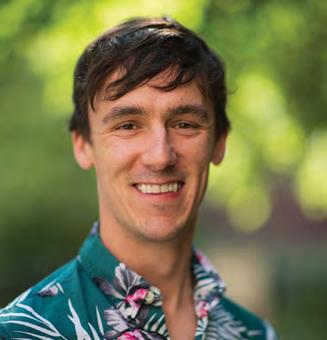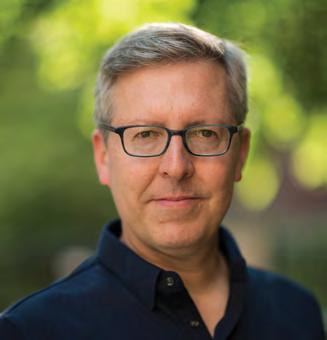
2 minute read
Summer Fellows
issue of New Literary History devoted to the global novel. He also explored a book project on South Korean literary and cinematic works that have begun to circulate globally in translation. Kim put the finishing touches on his book The Intimacies of Conflict: Cultural Memory and the Korean War and taught the course “The Unended Korean War in Korean/American Literature and Film.”
PHILIP CHRISTMAN LECTURER II, ENGLISH “The Writing Process”
Advertisement
This book examines the history of the idea of “the writing process” and traces its emergence, and the changes in the governing metaphors people use to conceptualize how writing gets done, with special attention to the twentiethcentury “process revolution” and the related reemergence of rhetoric as a field of study.
HENRY COWLES ASSISTANT PROFESSOR, HISTORY “The Scientific Method: Evolution and Experiment from Darwin to Dewey”
This project is a history of the algorithmic, five-step scientific method that is still taught in schools today. It roots this authoritative tool in a history of the human sciences, specifically in developments in early evolutionary psychology during the late-nineteenth century. ENRIQUE GARCÍA SANTO-TOMÁS PROFESSOR, SPANISH “Vital Signs: Midwifing Fiction in Spain, 1540-1690”
This book project will explore a selection of images of procreation in literature and portraiture (thunderstorms and floods, literary ‘miscarriages,’ monstrous births), as well as characters and scenes (midwives, wet-nurses, surgeons) in the portrayal of a period in which the idea of author and the rapid changes in obstetrics shaped new notions of creation, in both biological and aesthetic terms. SantoTomás will use his time at the institute to write a chapter devoted to Miguel de Cervantes’ take on childbirth in three of his short stories, in which he reflected on the state of medical care in his time, but also on the impact of the novel as an Italianate experiment for a new reading audience, as well as on his role as a pioneer who experimented with the many challenges of writing. Santo-Tomás is particularly interested in refining a number of ideas on mediation and interruption, examined as theoretical constructs that may or may not hold similar values today. These are three fascinating pieces that will allow him to share all the major theoretical questions of the project with a cohort of colleagues from other disciplines.
Philip Christman

Henry Cowles









